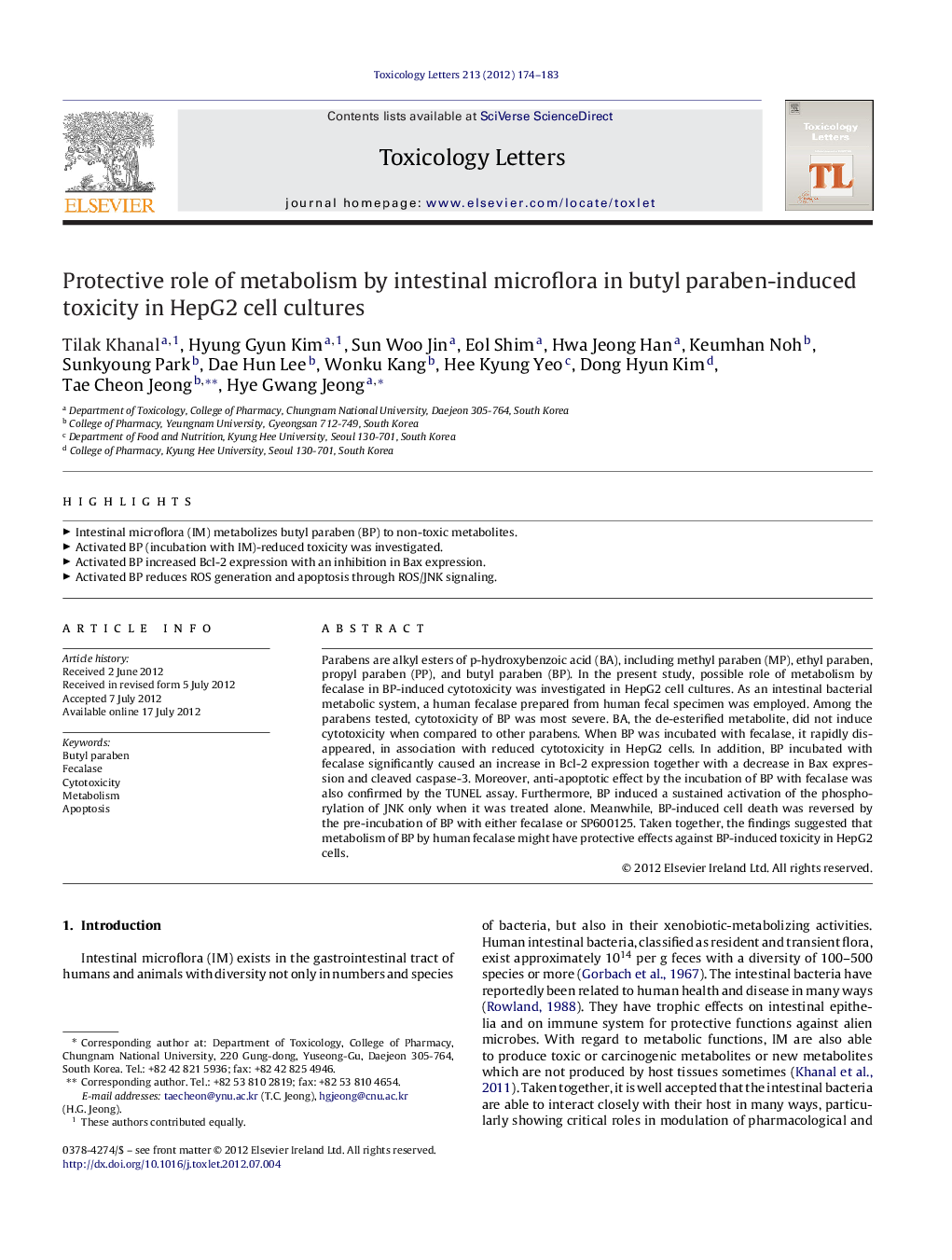| Article ID | Journal | Published Year | Pages | File Type |
|---|---|---|---|---|
| 2599405 | Toxicology Letters | 2012 | 10 Pages |
Parabens are alkyl esters of p-hydroxybenzoic acid (BA), including methyl paraben (MP), ethyl paraben, propyl paraben (PP), and butyl paraben (BP). In the present study, possible role of metabolism by fecalase in BP-induced cytotoxicity was investigated in HepG2 cell cultures. As an intestinal bacterial metabolic system, a human fecalase prepared from human fecal specimen was employed. Among the parabens tested, cytotoxicity of BP was most severe. BA, the de-esterified metabolite, did not induce cytotoxicity when compared to other parabens. When BP was incubated with fecalase, it rapidly disappeared, in association with reduced cytotoxicity in HepG2 cells. In addition, BP incubated with fecalase significantly caused an increase in Bcl-2 expression together with a decrease in Bax expression and cleaved caspase-3. Moreover, anti-apoptotic effect by the incubation of BP with fecalase was also confirmed by the TUNEL assay. Furthermore, BP induced a sustained activation of the phosphorylation of JNK only when it was treated alone. Meanwhile, BP-induced cell death was reversed by the pre-incubation of BP with either fecalase or SP600125. Taken together, the findings suggested that metabolism of BP by human fecalase might have protective effects against BP-induced toxicity in HepG2 cells.
► Intestinal microflora (IM) metabolizes butyl paraben (BP) to non-toxic metabolites. ► Activated BP (incubation with IM)-reduced toxicity was investigated. ► Activated BP increased Bcl-2 expression with an inhibition in Bax expression. ► Activated BP reduces ROS generation and apoptosis through ROS/JNK signaling.
